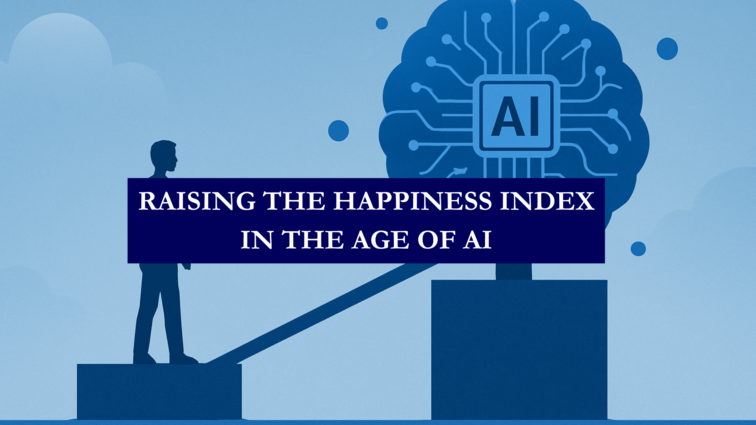We have lived too long in survival and scarcity mindsets, ever since the evolution of humanity some 300,000 years ago.
For the first time, we are presented with a once-in-a-generation opportunity to create true abundance. And all it really needs is a mindset shift.
The real measure of AI’s success is not productivity, valuations, or GDP growth. To me, it is whether AI lifts our Happiness Index—reducing inequality, narrowing income gaps, and making lives healthier and more fulfilling.
This is entirely possible. Solutions can be hyperlocal, optimized, and effective, often at one-tenth the cost.
Private sector companies can take ownership of villages to drive this change through a human-first approach, rooted in patience and guided by strong guardrails. Distributed and open architectures with democratized access are the need of the hour.
The World Happiness Report highlights seven key indicators where AI must deliver:
- GDP per capita – Prosperity that is inclusive, not monopolized (it should ideally be measured by the median, not the mean).
- Healthy life expectancy – Longer, healthier lives enabled by AI-driven healthcare.
- Social support – More time for family and community, not isolation.
- Freedom of choice – AI should enhance autonomy, not control.
- Trust in institutions – Transparency in AI builds confidence, while misuse erodes it.
- Generosity – Technology that nurtures empathy and sharing.
- Inequality – The biggest threat and opportunity: AI can either widen the gap or close it.
If managed wisely, AI-driven abundance can strengthen all seven pillars:
• Affordable AI tutors can make education equitable.
• AI healthcare can make diagnostics universal.
• Redistribution models such as AI dividends or UBI pilots can ensure fair sharing of gains.
• Open platforms can help rural and underserved communities benefit, not just major technology hubs.
The true test of AI is not whether it makes us faster and richer, but whether it makes us healthier, fairer, and happier.
While skepticism is natural—and many believe AI will worsen inequality—I remain convinced that with a shift to an abundance mindset, AI can raise the Happiness Index in our lifetime.
We have lived too long in scarcity. Let us not allow that old mindset to define the future.
This article is dedicated to my guru, Arun Maira, who has been speaking about this for years, and to Peter H. Diamandis, who ingrained the ideas of moonshots and abundance deep within me.

